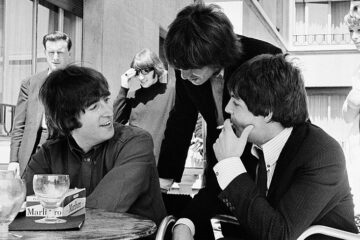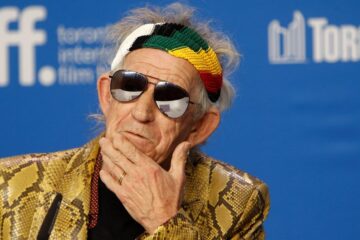On October 5th, 1962, The Beatles released their debut single. On April 10th, 1970, the band were no more. Within that brief window, those four lads from Liverpool changed the world. In fact, they sold so many records during that time that we had to wait two years for the official tally to be fully calculated. It was deemed that during their riotous tenure, they sold 545 million units. And when it comes to the current total for albums alone, the figure breaks the 600 million mark, proving their transcendence even after the split.
Much has been said about the whys and wherefores behind their demise, from the meddling ways of the controversial Allen Klein to the notion that it was a simple inevitability brought on by the rigours of fame. However, perhaps the most authoritative voice on the matter comes from someone who was front and centre amid the ruin of Rome: Paul McCartney. Adding to his recent admission, it has come at a point in his career where he doesn’t have a dog in the fight, everything has already been said, done and reconciled.
So, when he explained the break-up in detail at the age of 76, we can surely take his word for it? So, who broke it up? “I know,” McCartney proclaims, “John,” he asserted. “I don’t think anyone tried to pin it on anyone, it just came out that way. That’s a long story, but there was a meeting where John came in and said, ‘Hey guys, I’m leaving the group’. He’d found Yoko [Ono].”
This claim is corroborated by John Lennon, no less. On September 20th, 1969, John Lennon told Paul McCartney and Ringo Starr that he was quitting The Beatles. He had already informed Klein, but with business still to be ironed out and perhaps a secret wish that differences would be reconciled in time, their new manager urged Lennon to keep his planned departure secret.
“When I got back [from Toronto] there were a few meetings, and Allen said, ‘cool it,’ ’cause there was a lot to do [with The Beatles] business-wise, and it wouldn’t have been suitable at the time,” Lennon told Jann Wenner in 1970. “Then we were discussing something in the office with Paul, and Paul was saying to do something, and I kept saying, ‘No, no, no’ to everything he said. So it came to a point that I had to say something.“
Creative tensions had mounted within the band at the same time that the youngsters, who had been thrust into fame so young, were finally starting to settle down. So, during a charged meeting at Apple Corps, Lennon struggled to keep his secret under wraps. “I said, ‘The group’s over, I’m leaving.’ Allen was there, and he was saying, ‘Don’t tell.’ He didn’t want me to tell Paul even. But I couldn’t help it, I couldn’t stop it, it came out,” Lennon recalled.
For the purpose of continued business negotiations with EMI, the split was then kept within locked doors. ”Paul and Allen said they were glad that I wasn’t going to announce it, like I was going to make an event out of it,” Lennon continued. ”I don’t know whether Paul said, ‘Don’t tell anybody,’ but he was damn pleased that I wasn’t. He said, ‘Oh well, that means nothing really happened if you’re not going to say anything.’ So that’s what happened.”
Did Yoko Ono break up The Beatles?
If McCartney’s response sounds pretty nonchalant, then that should be indicative of the sense of inevitability surrounding the split. Their lives had simply changed, so in this regard, the tired rhetoric that Yoko Ono split up The Beatles is true. However, she didn’t drive a wedge, she simply represented a new chapter of maturity in their lives that fittingly left Fab Four as a new-enough married entity behind. As McCartney confessed to Howard Stern: “John had met up with Yoko, and even though we thought, ‘Oh God, it’s pretty intrusive’, because she used to sit in on the recording sessions, and we’d never had anything like that. But looking back on it, you think, ‘The guy was totally in love with her and you’ve got to respect that’.”
And so, when Ringo Starr opined on the Ono issue that “she’s not a Beatle, she never will be”, it set Lennon off, privately thinking, “That old gang of mine. That’s all over. When I met Yoko is when you meet your first woman and you leave the guys at the bar and you don’t go play football anymore and you don’t go play snooker and billiards”. It was time for him to move on, and that meant leaving The Beatles; as such, it was less of a split and more of an acquiescence.
Nevertheless, as McCartney asserts, it was Lennon who put a fine point on this and called it a day for good. While previous spats had seen people storm out, this was the first time it had been definitively announced and proclaimed with termination in front of management. Given the finality around that and the fact that each member had things to move onto themselves, this really did feel like curtains. That turned out to be the case.
As Macca says in Anthology: “I’d said: ‘I think we should go back to little gigs – I really think we’re a great little band. We should find our basic roots, and then who knows what will happen? We may want to fold after that, or we may really think we’ve still got it.’ John looked at me in the eye and said: ‘Well, I think you’re daft. I wasn’t going to tell you till we signed the Capitol deal’ – Klein was trying to get us to sign a new deal with the record company – ‘but I’m leaving the group!’ We paled visibly and our jaws slackened a bit.”
Alas, this paling was foreseen. As he says: “I must admit we’d known it was coming at some point because of his intense involvement with Yoko. John needed to give space to his and Yoko’s thing. Someone like John would want to end The Beatles period and start the Yoko period, and he wouldn’t like either to interfere with the other. But what wasn’t too clever was this idea of: ‘I wasn’t going to tell you till after we signed the new contract.’ Good old John – he had to blurt it out. And that was it. There’s not a lot you can say to, ‘I’m leaving the group,’ from a key member.”



